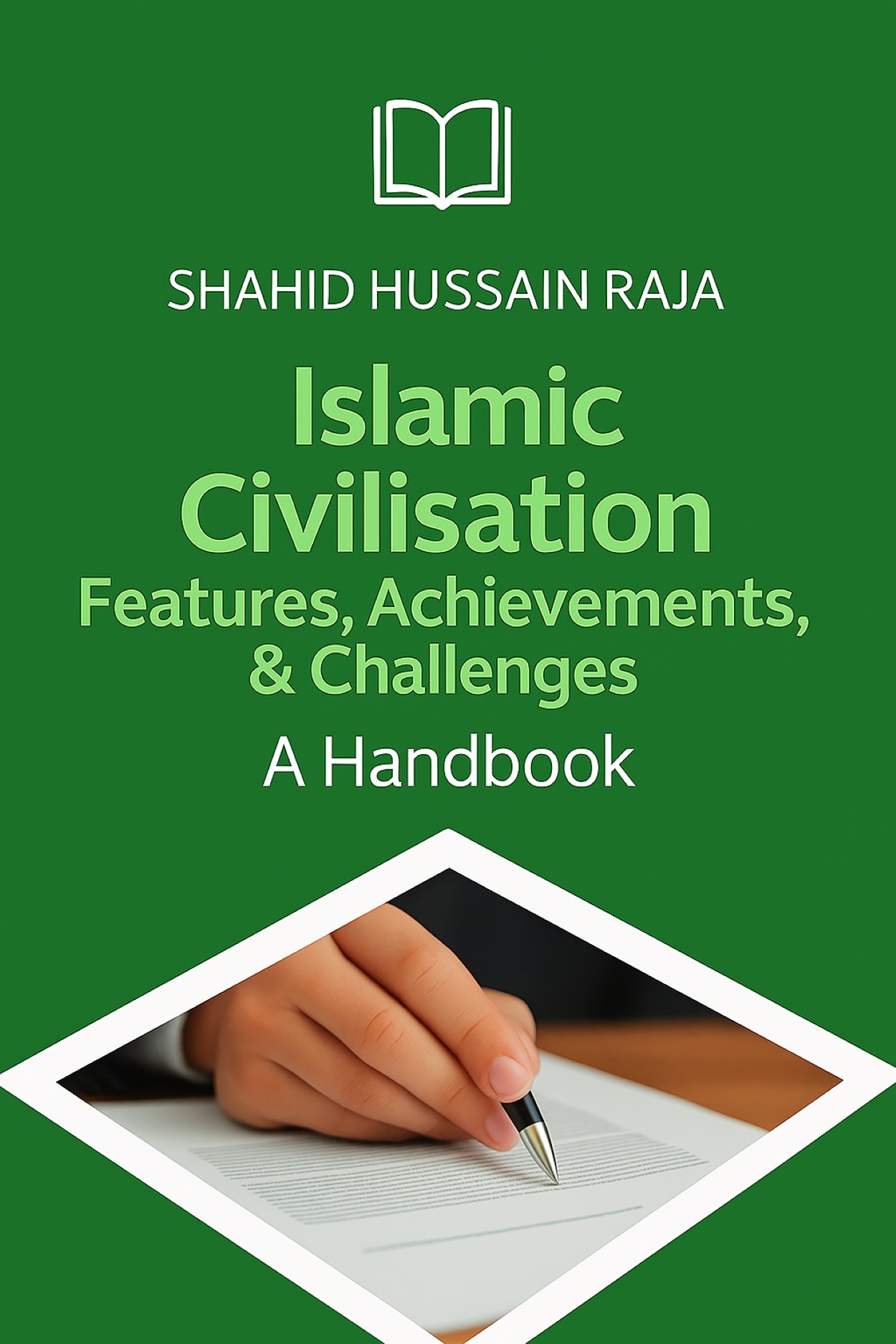
Islamic Civilisation: Features, Achievements, & Challenges offers a rich and accessible journey through twenty-five in-depth essays that illuminate the story of one of history’s most influential civilisations. Originally appearing as individual articles on Medium.com, each piece has been substantially rewritten, updated, and expanded with deeper research and sharper analysis. Together, they form a handbook that is at once scholarly and approachable, with bullet-point summaries in every chapter to guide the reader through complex ideas.
The book explores Islamic civilisation from its origins in 7th-century Arabia to its transformation into a truly global force by the 8th century, tracing its expansion through trade, conquest, and the spread of ideas. It examines the achievements of the Golden Age in science, philosophy, governance, and the arts, while also addressing the nuanced reality of its later trajectory—not as a simple decline, but as a series of ebbs, renewals, and region-specific renaissances. From the Ottomans and Mughals to enduring centres of learning like Al-Azhar, the narrative captures the diversity and resilience of Islamic societies across centuries.
Balancing historical depth with contemporary relevance, the essays consider the interplay between Islamic and Western civilisations, political thought, social justice, and the philosophical foundations of governance in Islam. They also confront the challenges of the modern era, from globalization to the struggle to reconcile tradition with modernity. Avoiding both nostalgia and cynicism, this handbook invites readers into an informed and thoughtful dialogue about Islamic civilisation’s enduring legacy and its potential role in shaping a shared future.
Genre: POLITICAL SCIENCE / Commentary & OpinionJUST PUBLISHED
It is crucial to distinguish between culture and civilization. Culture represents the distinctive way a society organises its life, beliefs, and practices within its particular geographical and social context. Civilisation emerges when that cultural framework transcends its original boundaries and begins to influence and be adopted by other societies. Islamic civilisation achieved this transformative status, evolving from its initial Arab cultural identity into a truly global civilisation beginning in the 8th century.
This transformation occurred through the three classical methods by which all civilisations have historically expanded their influence: trade, conquest, and the peaceful propagation of ideas. Through these channels, Islamic civilisation reached its zenith during the 10th and 11th centuries, establishing itself as a dominant force in shaping human thought, governance, science, and cultural expression across vast geographical regions spanning from Spain to Central Asia and beyond.